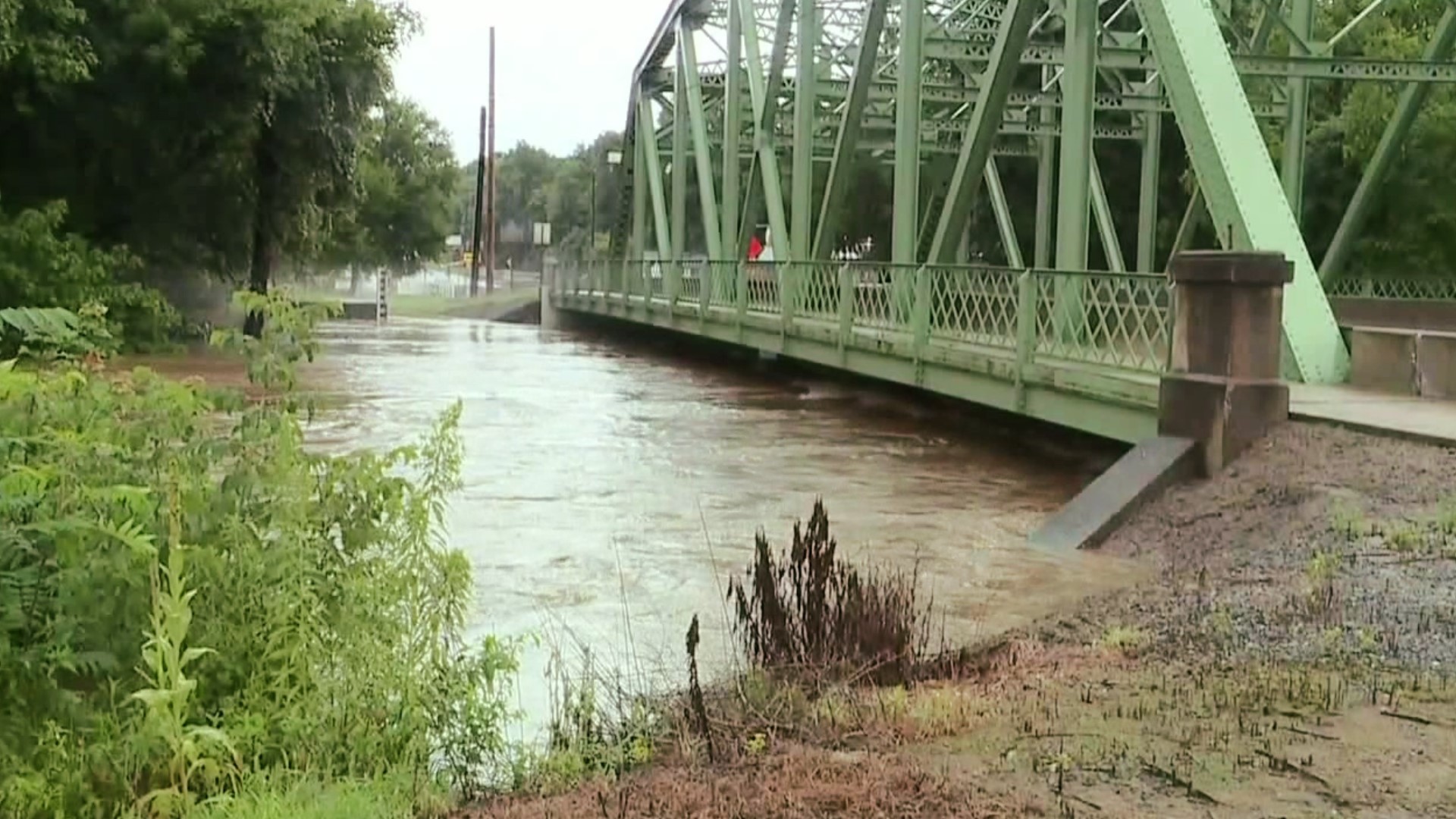PENNSYLVANIA, USA — You have heard us say it countless times, and it is the theme of the week for meteorologists with the National Weather Service: Turn around, don't drown.
The sun may be shining, but because Pennsylvania is such a flood-prone state, the National Weather Service coordinates with other local agencies in late March every year to promote flood safety awareness ahead of the spring and summer months.
"Once you get in the spring, you're dealing with that snowmelt. You're also dealing with generalized rainfall events. So, in the spring, you're really dealing with flooding. Once you get into the summer, it's more flash flooding," said Mitchell Gaines, lead meteorologist for the National Weather Service.
And it is important to know the difference. River flooding is longer-term and happens gradually over several hours or even during the span of several rain events. Flash flooding is caused by torrential downpours over a very short time, causing rapid flooding. That is more common in summertime thunderstorms.
Meteorologists with the National Weather Service say it only takes about six inches of water to knock you down. About a foot will float most vehicles, and two feet of water can carry cars, SUVs, and pickup trucks away.
"So that's only about knee high for most people. So that's not a lot of water on the road, if that water is rapidly flowing across the road, that water can definitely pick up a vehicle or other objects such as trees or debris," Gaines said.
Meteorologists say one reason river flooding here in Pennsylvania can be so common in the spring is because of snowmelt. When temperatures warm up, melting the snow, that could be several storms worth of rainfall flowing into the rivers at once. This won't be a factor this spring.
"But still, if we get some heavier pockets of rain, we'll be monitoring the potential for some possible minor river flooding as we head later into the week," said Gaines.
The National Weather Service has great resources on river levels and flood stages all year round. You can also check river and stream levels on WNEP.com here.
This week, meteorologists will offer tips about protecting yourself and your home, whether you live in a flood zone or not, things you can do now, and what to do if you are actually in a flood event in the future.
Check out severe weather tips on WNEP’s YouTube channel.

